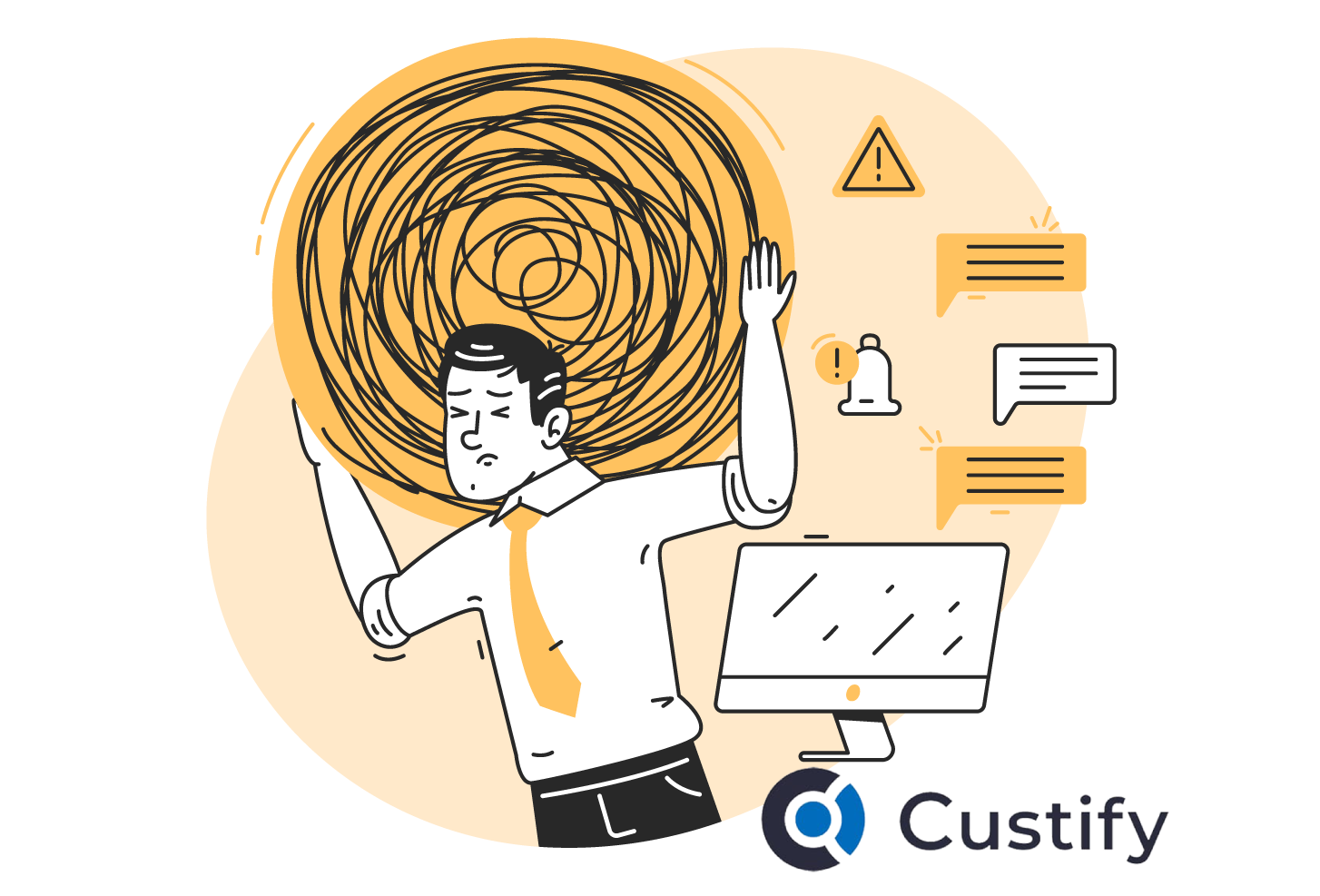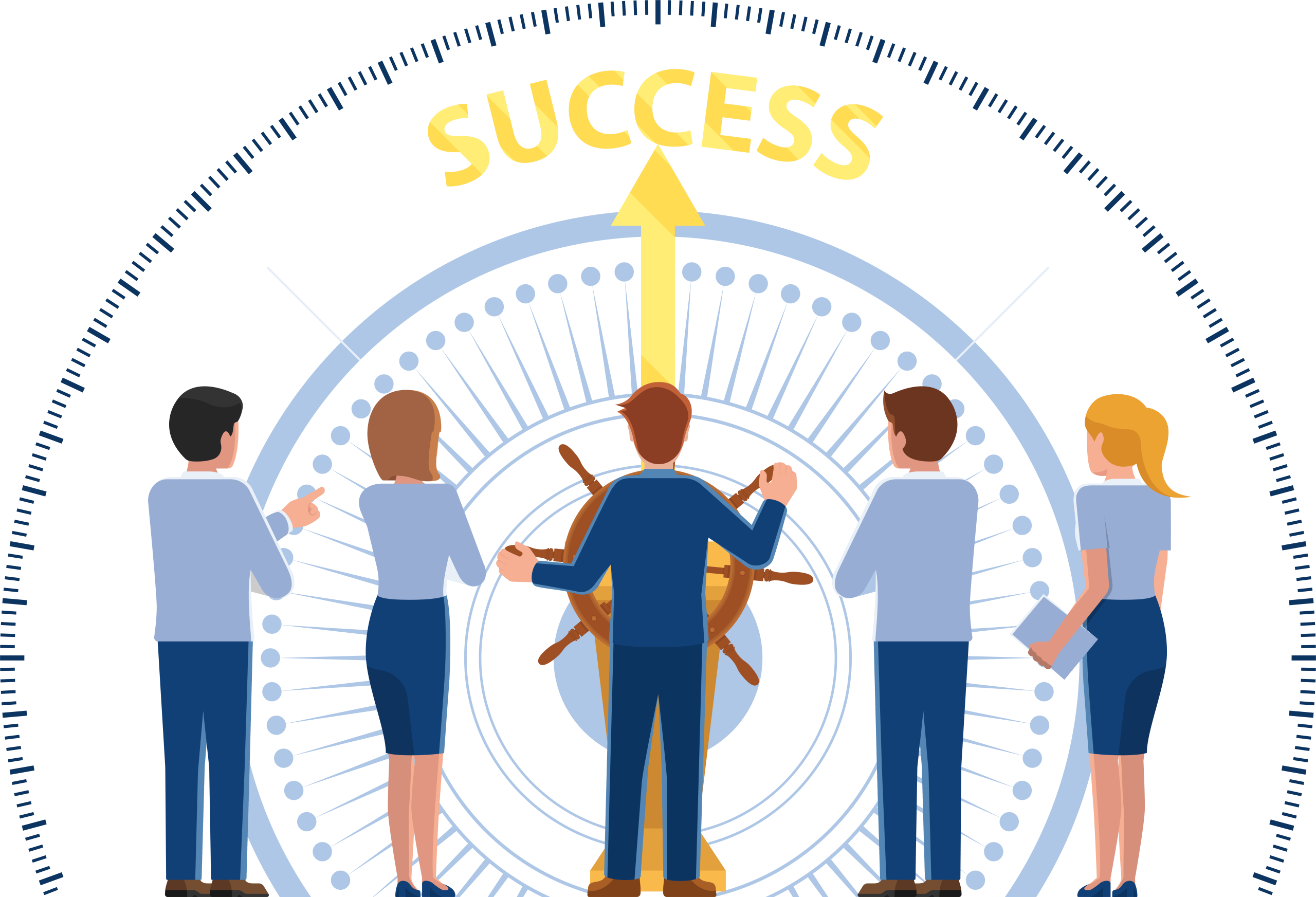Myth Busted: CSMs Can Do It All.
How to Avoid Quiet Quitting in Your CS Team
Most companies take CSMs’ ability to build strong customer relationships while driving upsells forward for granted. But Customer Success staff deals with over 10 types of tasks daily, according to a recent Quiet Quitting in CS report.
On top of that, the CS team is often the one blamed anytime the product or service doesn’t completely satisfy the customers’ outcomes. Add to this poor compensation, and it’s easy to see how CS staff is led to burnout, poor performance, low morale, and ultimately to quiet quitting.
Read on and find out what you can do to prevent quiet quitting in your CS team and how to create an environment that fosters engagement, motivation, and retention among your customer success professionals.
Current State of CSMs: Overworked and Underpaid
A CSM’s responsibility is to build relationships with customers, ensuring a product or service meets their needs, thus keeping customer churn levels low. Additionally, they communicate these needs to team managers within the company so everyone’s work aligns with customers’ needs.
The daily grind of a Customer Success Manager includes onboarding new customers, identifying upsell or cross-sell opportunities, evaluating customer reviews, checking user statistics, replying to customer emails, and more.
But all these activities are only part of what can be seen on the surface. Highly effective CSMs are well-equipped individuals who possess a comprehensive understanding of various disciplines and need to put these skills to good use daily:
- active listening
- problem-solving
- strong communication and negotiation skills
- time management
- good understanding of tech products
Thus, it comes as no surprise that overwork and underpay are some of the main reasons why customer success staff turn to quiet quitting.
Based on Custify’s Quiet Quitting Report, which surveyed over 570 CS professionals, quiet quitting affects around 69% of CS teams. 54% of customer success staff admitted they’ve already quiet quit or are considering it.
Yet, quiet quitting often precedes actual resignations. If left unchecked, it can contribute to a higher turnover rate within your customer success team while reducing morale and performance.
The same report also revealed a surprising fact: almost half of the employees who leave their jobs are senior people, who are usually more difficult to replace. Losing experienced team members can result in a significant loss of knowledge and expertise, making it difficult to maintain consistent service quality.

Source: Custify Quiet Quitting Report
Oftentimes, CS staff also become disengaged at work due to poor management and the lack of clear goals and expectations, along with the fact that the CS department is viewed as a catch-all customer service, without clear boundaries.
Additionally, most companies only consider the sales and marketing departments as primary drivers for revenue growth. But marketing and sales need CS’s help to boost customer happiness and retention. In fact, CS spearheads alignment on customer outcomes and brings everyone together to work on improving customer goal achievement and, implicitly, their retention and loyalty.
How to Prevent Quiet Quitting in Your CS Team
1. Ensure Seamless Alignment Across The Entire Company
Fostering deep connections between businesses and their valued customers is no easy job. Without healthy communication between CS and sales, marketing, product, and support teams, the CS staff will struggle to find relevant answers, vital information will get lost in the ether, and they’ll postpone crucial decisions.
That’s why company CS alignment is one of the most important steps that help in ensuring everyone’s work is focused on the same goal.
CS leaders, CEOs, and managers should create and enable a comprehensive plan to bridge the gap between all these departments, so they can easily share customer information and build a feedback loop centered around customer expectations.
This creates a synergy that helps the CS team and the entire company thrive and become more productive.
2. Automate Customer Success Workflows
The study has shown that CSMs also need more helpful tools and methods to automate their work.
By harnessing the power of automation, CS staff can effortlessly handle repetitive and draining tasks such as emails, notifications, proactive customer engagement, upsell opportunities, and monitoring daily metrics.
CS workflows that are ideally suited for automation include:
- sending welcome and onboarding emails
- monitoring customer health scores
- conducting customer surveys (e.g., an automated flow that sends CSAT surveys to select customers)
- sending customers announcements about new features
- sending notifications on upsell / cross-sell opportunities
- sending educational emails to new users
With this newfound bandwidth, CSMs can position themselves to effortlessly welcome a steady influx of new customers quarter after quarter, all while ensuring that delivery and operations teams remain stress-free and the business reputation remains intact.
3. Set Clear Job Expectations
Setting clear job expectations is beneficial for the lead CSM as well as for CS reps. Having clarity in terms of OKRs and responsibilities can create optimal conditions for increased productivity, autonomy, and growth.
Create thorough guidelines of what the CS team’s responsibilities entail and keep in mind to communicate them both verbally and on paper. A written copy of job expectations gives CSMs something more palpable they can refer back to and gauge their performance.

Other best practices include:
- Set realistic goals and timelines: although there might be times when the CSM needs to speed up or do extra work, a rushed workflow shouldn’t be the status quo.
- Be a good example and create a culture of consistency: employees often look up to their leaders, and if you operate in an inconsistent manner, you’ll create an environment of stress, distrust, and confusion.
- Encourage open feedback and communication: acknowledge the CSM and the entire CS team for their work, and provide constructive and timely feedback on their performance.
4. Have Regular 1-On-1 Meetings
Quiet quitting doesn’t happen all of a sudden, there are usually some signs. Frequently, CSMs articulate concerns their leaders acknowledge but fail to fix or take seriously. Team members who perceive their managers as oblivious to their opinions will lose trust in their leaders and move towards quiet quitting.
Leverage one-on-one sessions to show empathy and genuinely understand the emotional state of your team. Don’t expect them to simply disclose their struggles to you. You can open these discussions by expressing your own highs and lows at the workplace.
If your team seems to be headed for quiet quitting, find the reasons behind their responses and explore ways in which you can both find a solution to increase their engagement and motivation.
5. Create an Employee Recognition Program
Quiet quitters among CSMs tend to feel under-appreciated. When their work goes unnoticed and un-praised, they feel no one cares about their efforts and will stop pushing boundaries to become high-performing.
Employee recognition programs are a great strategy to battle this mindset and will positively affect people’s self-esteem and morale. CSMs are more likely to keep up their good work if they’re encouraged.
Acknowledge and award CSMs as well as any member of the CS team for standout work and show them that what they do matters for the organization.
According to a Deloitte study, companies with recognition programs had 31% lower voluntary turnover than those without. So, employee recognition will help you increase productivity and also retain top talent.
Summing Up
An open feedback culture, autonomy, and recognition are important elements that positively impact a CS team’s productivity and performance, as well as the company’s overall success.
By enforcing these techniques, you can prevent quiet quitting in your customer success team and foster a culture of engagement, satisfaction, and retention which can be passed on to customers. Your employees are your most valuable asset, so if you take care of them, you’ll inevitably make your customers happy too.








